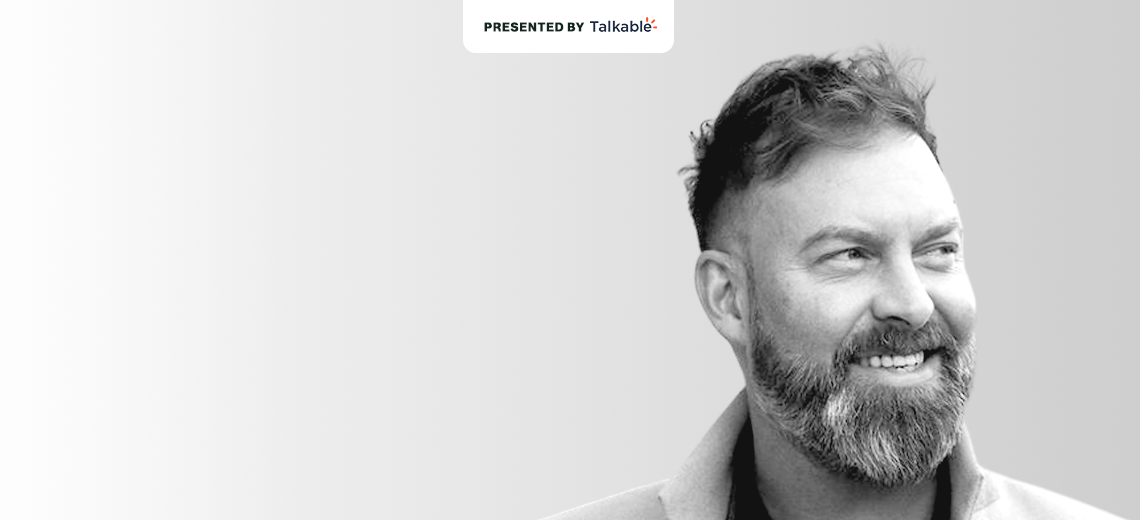This is an episode of the Glossy Fashion Podcast, which features candid conversations about how today’s trends are shaping the future of the fashion industry. More from the series →
Subscribe: Apple Podcasts | Stitcher | Google Play | Spotify
According to its president and CEO, Drew Green, 7-year-old suit specialist Indochino is “the largest custom apparel company in the world,” and growing.
Indochino’s set to eclipse 100 stores this year, opening eight in February alone, Green said on the latest Glossy Podcast. Its other plans for 2022 include expanding to women’s suiting and increasing its wedding apparel business.
For several years already, the company’s done nine figures in annual revenue. Secrets to its success include taking a diversified approach to marketing that includes “everything from podcasts to team sponsorships with the Yankees, the L.A. Rams and the Boston Red Sox,” Green said.
The company’s “showroom” store model, which necessitates minimal investment, and prioritization of the customer experience have also served it well.
“I like the Four Seasons model [of earning customer loyalty],” Green said. “I understand the benefits of actually having points or cashback and all the different mechanisms within a loyalty program. But where we’ve invested for loyalty is in the actual experience: making it fun, making it interesting and making it memorable. That’s what the Four Seasons does. They don’t have points, they don’t have cashback, they just provide a world-class experience.”
Below are additional highlights from the conversation, which have been lightly edited for clarity.
Ad position: web_incontent_pos1
Staffing for stores
“We take a lot of pride in the fact that we have a very different retail experience. It’s appointment-based. You’re coming into the store and you’re creating a one-of-a-kind garment. But then you’re walking out and you don’t have anything, because we’re then going to go make it very quickly and ship it to you. As we expanded into retail, we knew that, and we were cautious. In 2015, we launched six or seven stores. And then the next year, we kind of paused and refined the model. And now, we’ll be at well over 100 stores this year. We really thought that training was important, because, at the end of the day, the people are representing our brand every day. And so we do invest a lot of time in training. And, as you can imagine, it’s a one-hour appointment. So you have to know what you’re doing to really help the customer. And so we’ve got an amazing team in retail, we’ve got an amazing team in China, we’ve got an amazing team here in Canada at head office – and I’m just grateful for that. Because that’s how you win, right? It starts with people and a great team.”
On where to set up shop
“When we first launched, we went to L.A., New York, Boston, Chicago — all the big markets. And that was our focus. The No. 1 reason why that was our focus was that we had so many online consumers in those markets, and the markets are big. As we’ve gone on, what we’ve noticed is this amazing thing: Pre-Covid, New York was our biggest market. We’ve got six showrooms [there], not counting the surrounding areas. And obviously, it’s a very big market. But it’s no longer our No. 1 market. Some of the Southern states now are becoming our No. 1 markets, as we’ve launched three, four or five showrooms in a state. And we want to serve as many people as we can with the unique experience we have. I’m a big fan of Alabama. I love that part of the country and obviously the football team. I’m looking forward to opening [a store] there. And, when we go into a market, we try to become part of the culture and become part of the community. When we launched Melrose, which is a beautiful showroom, it was our goal right away to see how we could partner with the Rams, and we’re a proud partner with them. And we feel like we’re part of the community now.”
Strategic fundraising
“With Indochino, we’ve raised over $100 million to date.… I can remember talking to one of my board members in 2015 — he’s a VC and a very good friend — and I said, ‘Hey, you know what? Let’s raise money differently. Let’s attract and really partner with strategic investors who can propel us operationally and who we can benefit operationally, and then also get capital.’ And we’ve done a really, really good job of that. We had a $30 million private placement with our manufacturer in China. They’ve been just a phenomenal partner; they’re like family now. And they’ve benefited from our supply chain, they’ve also benefited, obviously, as the share price has gone up. From a private company standpoint, we’ve partnered and taken investment from a media company. We’ve partnered and taken investment from Mitsui, which is one of the largest trading companies in the world. And although Nordstrom isn’t investing capital, I view that in the same light, just in terms of the amount of effort they’re putting into it. And so that’s really been a key to success. As an entrepreneur, you have lots of different choices to make, in terms of your capital strategy. And there’s nothing wrong with the VC route, there’s nothing wrong with private equity, high net worth. But I’ve really always had a lot of success on the strategic side and really creating win-wins with partners of a business.”




